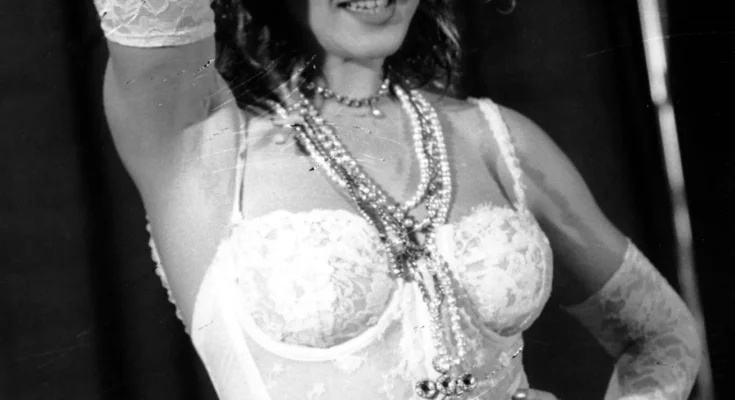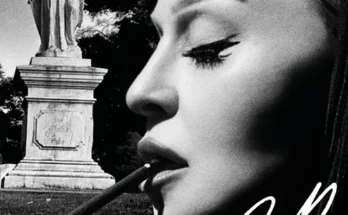When Madonna Louise Ciccone burst onto the music scene in 1983, few could have predicted that the brash, stylish young woman from Michigan would go on to redefine the contours of pop music, celebrity, and female empowerment for decades to come. Her arrival was not just the introduction of a new artist—it marked a cultural shift. From her debut album to her ever-evolving image and sound, Madonna has continuously pushed boundaries, provoked dialogue, and reinvented what it means to be a global pop star. Over a career that has spanned both the 20th and 21st centuries, Madonna hasn’t just ridden the wave of pop culture—she has been its architect.
The Birth of a Pop Revolutionary
Madonna’s 1983 self-titled debut album, powered by hits like “Holiday”, “Lucky Star”, and “Borderline”, wasn’t just a collection of catchy dance tracks—it was a statement. In an industry dominated by male artists and a narrow view of femininity, she brought a fresh, unapologetic boldness. Her fusion of street style, fashion-forward aesthetics, and raw ambition stood in stark contrast to the carefully curated personas of female pop stars before her. Madonna didn’t just sing about love and heartbreak—she embodied independence, sexual agency, and control.
With her breakthrough sophomore album, Like a Virgin (1984), she took her self-crafted image global. The performance of the title track at the MTV Video Music Awards, where she writhed on stage in a wedding dress, was seen as scandalous by some and revolutionary by others. It cemented her reputation as a provocateur—one who didn’t just court controversy for attention, but used it as a tool for cultural conversation.
Reinvention as Art Form
One of Madonna’s most influential contributions to pop culture is her relentless reinvention. She anticipated the need to evolve with the times long before the digital age made rapid transformation a necessity. From the Material Girl to the Like a Prayer era; from Erotica to Ray of Light; from the disco-drenched Confessions on a Dance Floor to the reggaeton-influenced Madame X, Madonna has never allowed herself—or her audience—to get comfortable.
Her 1989 album Like a Prayer marked a turning point. Combining deeply personal lyrics with religious and political imagery, it was both a commercial success and a critical triumph. The title track’s video, featuring burning crosses and a Black saint, drew outrage from conservative groups and praise from art critics. Madonna was no longer just a pop star—she was a cultural lightning rod.
Champion of Female Empowerment and LGBTQ+ Rights
Madonna has always been more than just a musician—she’s a symbol. For many women, she has embodied autonomy, defiance, and the power of self-expression. She challenged the double standards in how female artists were allowed to express their sexuality, age, and ambition. Unlike many female entertainers of her generation, Madonna refused to fade away or “age gracefully” in the way society demanded. Instead, she embraced her own narrative, even when it meant facing criticism for being “too provocative,” “too old,” or “too political.”
Equally significant is her longstanding advocacy for LGBTQ+ rights. Long before it was mainstream, Madonna was standing with the queer community—whether through her inclusion of gay dancers and choreographers, her outspokenness during the AIDS crisis, or her celebration of queer culture in her art. Albums like Erotica and the documentary Truth or Dare (1991) not only broke taboos but also gave visibility to marginalized voices.
Cultural and Commercial Impact
In commercial terms, Madonna is one of the best-selling female artists of all time, with over 300 million records sold globally. She holds countless chart records, including being the artist with the most Top 10 singles on the Billboard Hot 100. But numbers alone cannot capture the full extent of her impact.
Her influence can be seen in virtually every major pop star who came after her. Beyoncé, Lady Gaga, Britney Spears, Rihanna, and countless others have cited Madonna as a foundational influence—not just musically, but in how to navigate fame, fashion, and feminist discourse. She essentially created the blueprint for the modern pop icon: a hybrid of musician, performance artist, and social commentator.
Moreover, Madonna’s influence extended into fashion, film, and global activism. She helped turn the music video into a legitimate art form and was one of the first artists to fully understand and exploit the power of MTV. Her tours redefined the concert experience, transforming performances into theatrical spectacles that were as much about narrative and aesthetic as they were about the music.
A Legacy Still Unfolding
Now in her mid-sixties, Madonna remains creatively active. Her 2019 album Madame X was a genre-bending project that fused Latin pop, experimental sounds, and political commentary. Even as the music industry has shifted dramatically with streaming and social media, Madonna has adapted, maintaining relevance in an era obsessed with the new. She remains fearless in both her artistry and her public persona—an enduring symbol of reinvention, rebellion, and resilience.
Her recent health scare in 2023, which led to the postponement of her Celebration tour, reminded the world of her humanity—but also of her strength. When the tour resumed, fans around the globe witnessed not a relic of the past but a living legend, still commanding stages with the same vigor and fire that launched her career over 40 years ago.
Conclusion: The Architect of Pop Culture
To call Madonna merely a pop star is to undersell her importance. She is an architect of pop culture—shaping not only the sound of popular music but its aesthetics, politics, and identity. Few artists can claim such a profound and lasting impact. She turned controversy into conversation, reinvention into tradition, and pop into a platform for expression and activism.
From the moment she made her debut in 1983, Madonna has not just participated in the evolution of music—she has led it. And while many artists have tried to imitate her, none have matched her blend of innovation, resilience, and sheer cultural force. Madonna is, and always will be, an icon—not just for her time, but for all time.



